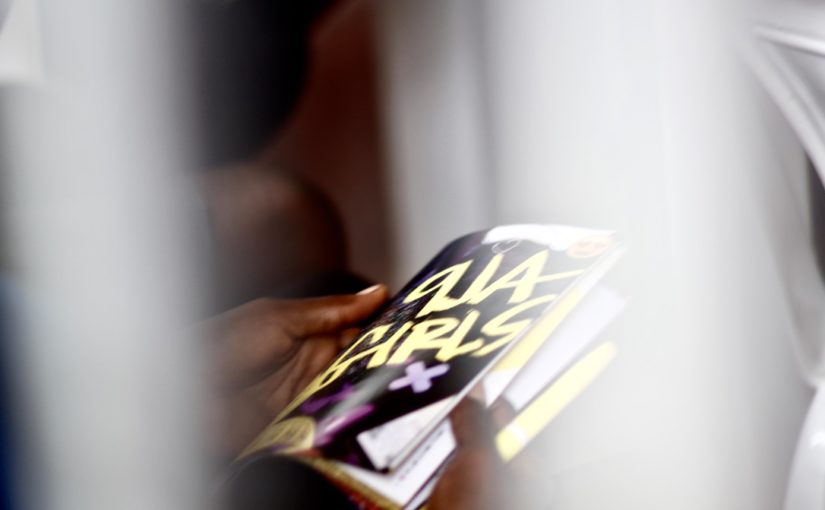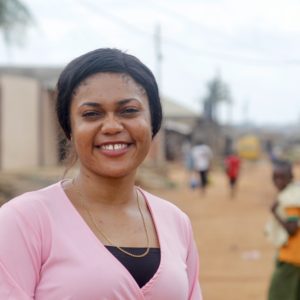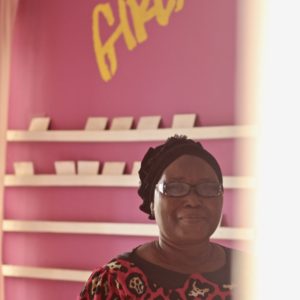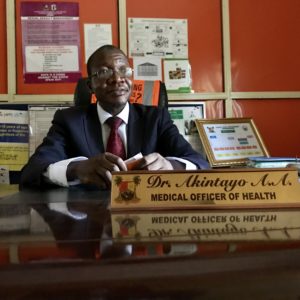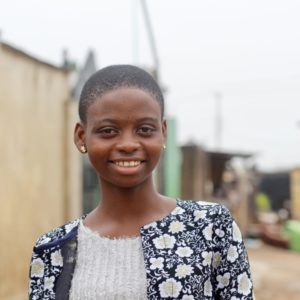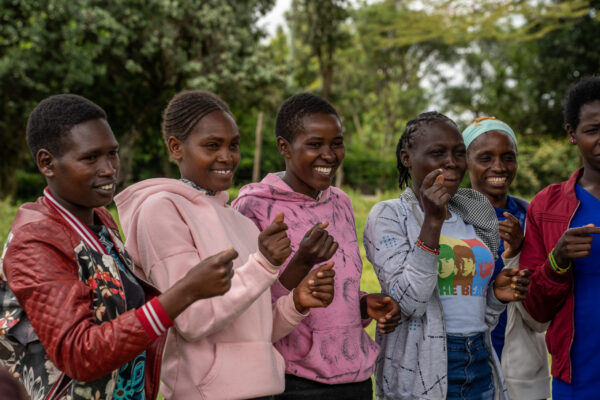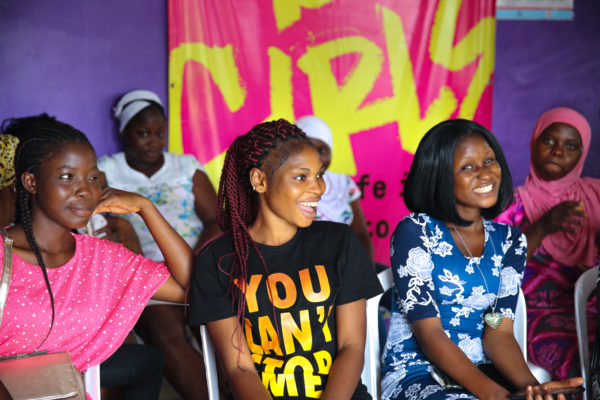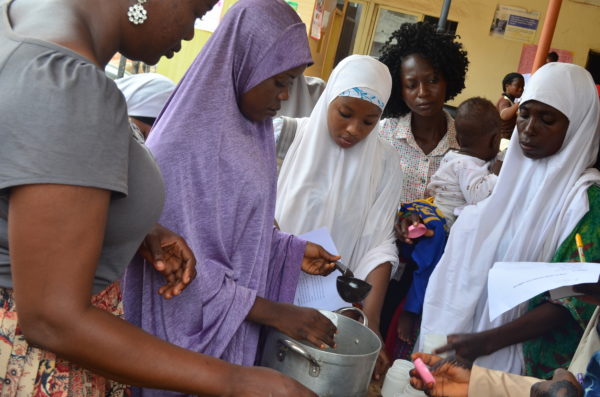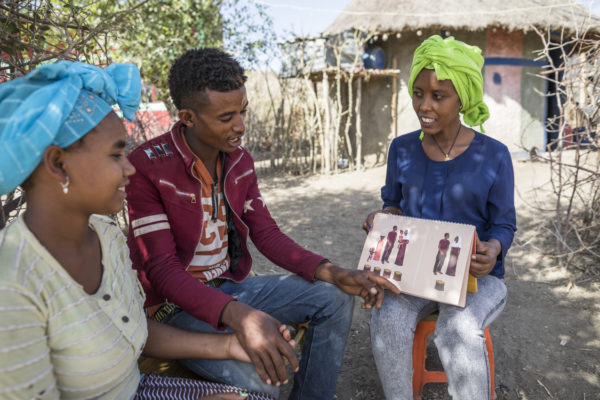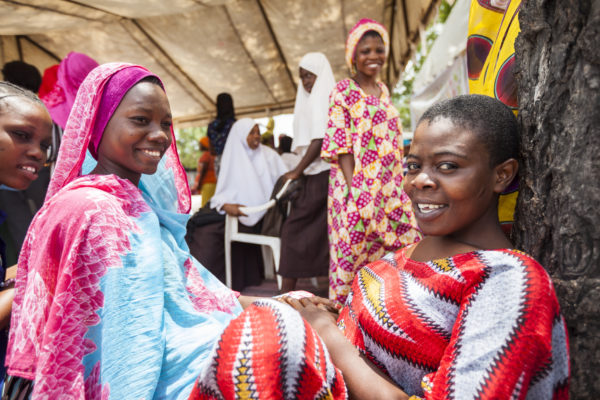By Emma Beck, Associate Communications Manager, PSI
“The first time I got my period [at age 16],” Monsurat Ahmed-Ogundipe chuckles. “Well, my mom killed a chicken to celebrate.”
Ahmed-Ogundipe, now the Health Education Officer in Ikeja, Lagos, Nigeria, looked squarely forward and continued, “and then she told me I should never sleep with a man.”
That was it.
Her mother had stopped short of sharing other ways Ahmed-Ogundipe could prevent an unplanned pregnancy.
Yet her friends around her kept getting pregnant. There surely was more that Ahmed-Ogundipe needed to know then, and young girls still need to know today.
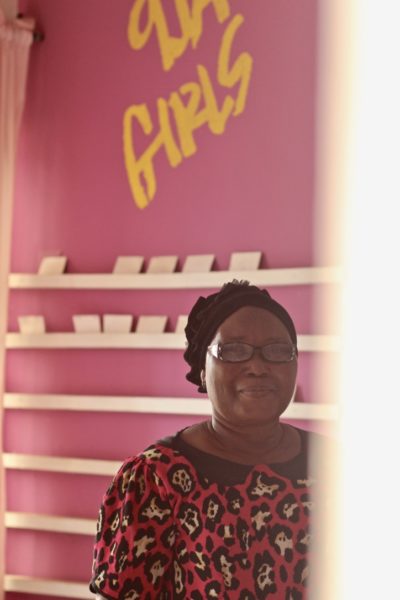
Across Nigeria, girls navigate a complex web of socio-cultural barriers that limit their access to sexual and reproductive health (SRH) information and services. Taboos around contraception remain rampant, and girls often lack trusted sources and spaces to turn to for questions about their health and changing bodies.
Of course, young girls could come to the community clinic, Ahmed-Ogundipe explains, but they do so knowing that they’ll face the judgment of providers and the prying eyes of adults in the waiting room, many of whom would report back to girls’ family members questioning – critically – if they had come to the clinic due to an STI or to treat an illness.
The stigma is simply too high.
The Urgency of Now
According to the Demographic Health Survey, 23 percent of girls in southern Nigeria will have given birth by the age of 19. Some three in 10 girls aged 15-19 want but, for a myriad of reasons, don’t have access to modern contraception. And across the nation, 1 in 4 pregnancies among this age group will end in an abortion, many of which are unsafe.
“Young people have SRH questions,” Ahmed-Ogundipe says. “They need space to get their answers.”
Adolescents 360 (A360)’s 9ja Girls – an adolescent and youth SRH program powered by PSI and implemented by the Society for Family Health— fills a health system need. The project, which works alongside young people and in partnership with public health facilities, breaks down the misperceptions surrounding contraception and delivers girl-defined spaces for unmarried girls aged 15-19 to make their health and life choices on their own terms.
A Girls-Only Space
It’s a Saturday at the Agbelekale Health Clinic.
In a few short hours, the community’s young girls and the providers trained to lead 9ja Girls’ Love, Life and Health (LLH) session will fill the space. It’s here that girls identify their dreams and how they can achieve them, including how to use tools to prevent an unplanned pregnancy.
“9ja Girls gives girls a space to open up,” Ahmed-Ogundipe says.
From January 2018 through September 2019, 9ja Girls has worked in nine Nigerian states to serve more than 69,254 15- to 19-year-old girls with modern contraception. Roughly seven in 10 girls who engage with 9ja Girls voluntarily adopts a method, and about seven in 10 choose a long-acting method.
This is change that drives impact.
“I want the government to support this,” Ahmed-Ogundipe emphasizes. “9ja Girls is good. I feel happy. Truly happy.”

